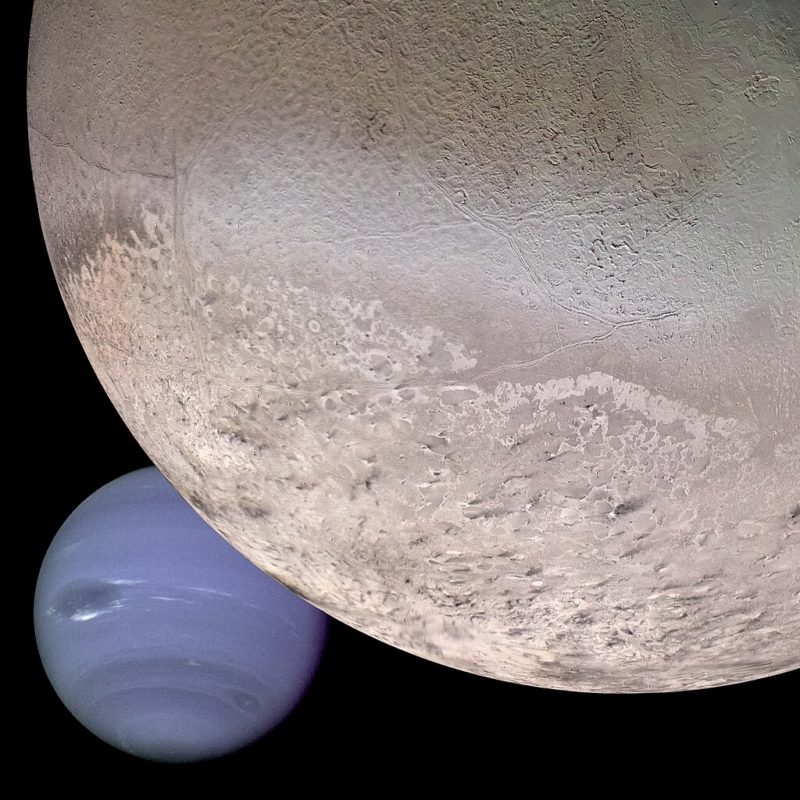
Have you ever wondered why scientists believe that Triton, one of Neptune’s moons, is a captured moon?
In this article, we will explore the key evidence and reasons that support this intriguing hypothesis. From its unusual orbit to its composition, Triton presents a wealth of compelling clues that suggest it was not born in its current location. Let’s delve deeper into the fascinating world of Triton and uncover the mystery behind its origins.
Triton’s Retrograde Orbit
One of the primary reasons why scientists believe Triton is a captured moon lies in its unconventional orbit around Neptune. Unlike most moons that orbit their host planets in the same direction as the planet’s rotation (prograde motion), Triton orbits Neptune in the opposite direction (retrograde motion). This retrograde orbit is highly unusual and suggests that Triton did not form alongside Neptune but was captured from somewhere else.
Unusual Composition
Triton has a composition similar to Pluto and other objects in the Kuiper Belt, a region of the outer solar system beyond Neptune that contains many icy bodies. This composition is distinct from the larger moons of Neptune.
How Was Triton Captured?
The most likely current hypothesis according to Craig B. Agnor is that the moon was originally part of a binary system with another object and was eventually captured by Neptune due to gravitational interactions. This is known as a three-body gravitational encounter. The binary system could have been similar to the one that currently exists between Pluto and Charon.
This capture was most likely very violent as posited by Raluca Rufu and Robin M. Canup. Before Triton’s orbit stabilized, it probably collided with at least one other moon and caused collisions between other moons around Neptune.
Conclusion
Through analyzing the key evidence, such as Triton’s unusual orbit and composition, scientists have formulated a strong case suggesting that Triton is indeed a captured moon. The combination of these compelling factors provides valuable insights into the formation and evolution of moons in our solar system. By unraveling the mysteries of Triton, we gain a deeper understanding of the dynamic nature of the cosmos and the captivating forces at play. So, the next time you observe Triton shining in the night sky, remember the fascinating tale behind its capture and ponder the wonders of our vast universe.